Pandemic Prevention
3 Questions
Dr. Jay Varma spearheaded New York City’s response to the COVID-19 virus as senior adviser for public health to then-Mayor Bill de Blasio, prior to joining Weill Cornell Medicine to direct the new Center for Pandemic Prevention and Response.
-
1. You’ve said that we live in an “age of pandemics.” What does that mean?
COVID-19 is just one of many pandemics to come. Most new infectious diseases arise from animals, and human interaction with animals has increased through deforestation and other changes in land use. Migration, urbanization and especially climate change are making it easier for these new diseases to spread around the world.
-
2. What do you envision for the new center?
Weill Cornell Medicine is uniquely positioned to generate new knowledge across disciplines and help local government and non-government health organizations turn that knowledge into action. With this new center, we can become a world leader in reducing illness and saving lives from future pandemics.
-
3. Why is an interdisciplinary approach critical?
Human health cannot be separated from the health of plants, animals and everything else in the environment. To create solutions that have a lasting impact, we must recognize that these diseases emerge from an unhealthy planet and work across disciplines.
Fall 2022 Front to Back
-
From the Dean
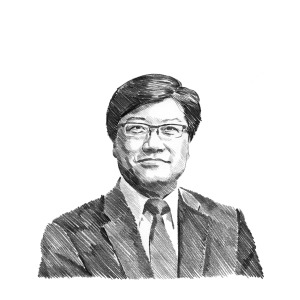
A Message from the Dean
As an academic medical center, our tripartite mission is what drives us forward: we thrive on providing world-class care to our patients, making groundbreaking discoveries that are changing the future of medicine, and teaching the health care leaders of tomorrow. -
Features
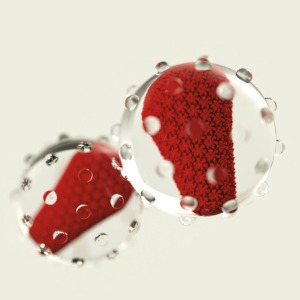
The Search for a Cure
Weill Cornell Medicine scientists aim to liberate those living with HIV by subduing the virus for good. -
Features
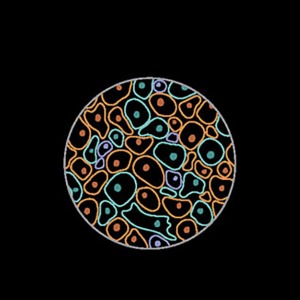
Evasive Action
Could interrupting the evolutionary process of mutating cells hold the key to vanquishing cancer? Researchers led by Dr. Dan Landau are on the case. -
Features

New Frame of Mind
Psychiatrist and neuroscientist Dr. Conor Liston (M.D. ’08, Ph.D.) and his team are poised to upend the way mental health disorders are diagnosed and treated. -
Notable
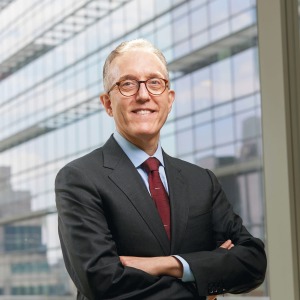
New Cancer Director
Internationally acclaimed medical oncologist Dr. Jedd Wolchok, whose innovations in immunotherapy revolutionized melanoma treatment, was recently recruited as the Meyer Director of the Sandra and Edward Meyer Cancer Center at Weill Cornell Medicine. -
Notable

3 Questions
Dr. Jay Varma, director of the new Center for Pandemic Prevention and Response, explains why an interdisciplinary approach is critical. -
Notable

Overheard
Weill Cornell Medicine faculty members are leading the conversation about important health issues across the country and around the world. -
Notable

Notable News Briefs
Faculty appointments, honors, awards and more — from around campus and beyond. -
Notable

Dateline
In the global scientific effort to understand vaccine and natural immunity to SARS-CoV-2, Weill Cornell Medicine’s location in Qatar, a country of only a few million people, has been making an outsized contribution. -
Grand Rounds

Chiari Malformation
When is Surgery Necessary? -
Grand Rounds

3 Questions
Dr. Susan Loeb-Zeitlin, who worked with a multidisciplinary team to launch the new Women’s Midlife Program, shares insights about making menopause manageable. -
Grand Rounds

Social Impediments to Health
The murder of George Floyd and the resulting national reckoning on race, along with the disproportionate impact of COVID-19 on communities of color, galvanized creation of the Anti-Racism Curriculum Committee at Weill Cornell Medicine. -
Grand Rounds

Grand Rounds News Briefs
The latest on teaching, learning and patient-centered care. -
Discovery

COVID-19 and Diabetes
Basic science and clinical investigations converge to offer answers. -
Discovery
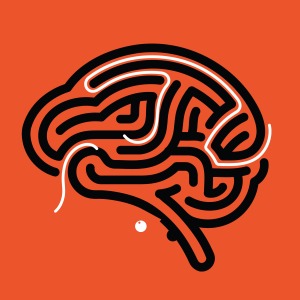
Development of Schizophrenia
Multiple changes in brain cells during the first month of embryonic development may contribute to schizophrenia later in life. -
Discovery

Findings
The latest advances in faculty research, published in the world’s leading journals. -
Alumni
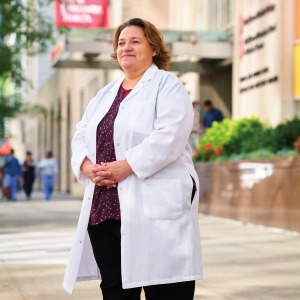
Profiles
From taking the lead in newborn medicine to forging critical connections to move research from the bench to the bedside, our alumni are making an impact. -
Alumni

Notes
What’s new with you?
Keep your classmates up to date on all your latest achievements with an Alumni Note. -
Alumni

In Memoriam
Marking the passing of our faculty and alumni. -
Alumni
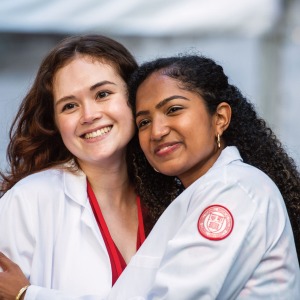
Moments
Marking celebratory events in the lives of our students, including Match Day, the White Coat Ceremony and Graduation. -
Second Opinion
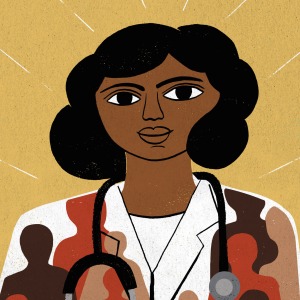
A New Lens
What’s one way that medical education must change to better address health inequities? -
Exchange
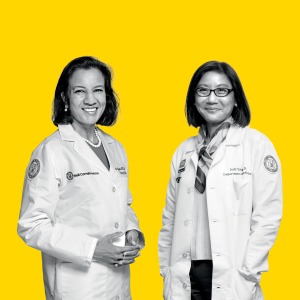
Pivot Points
Two women leaders at Weill Cornell Medicine whose professional paths have connected discuss the power of mentorship — for themselves and other women in academic medicine. -
Muse
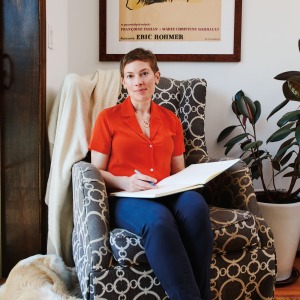
Two Forms of Truth
Dr. Laura Kolbe, whose poetry has garnered notable honors, talks candidly about how her writing helps her build a bridge to her work as a clinician. -
Spotlight

Building Connections
Dr. Kathleen Foley (M.D. ’69) has been bringing people together throughout her expansive career as a specialist in pain management and palliative care for cancer patients.